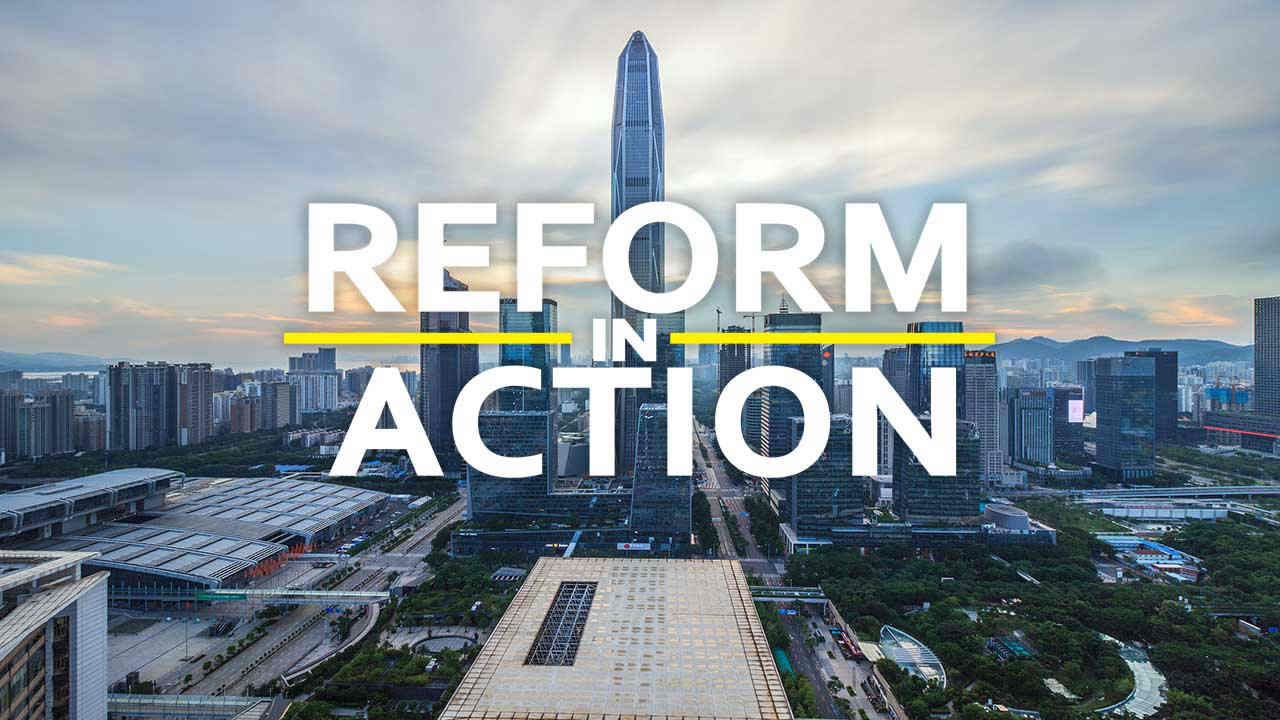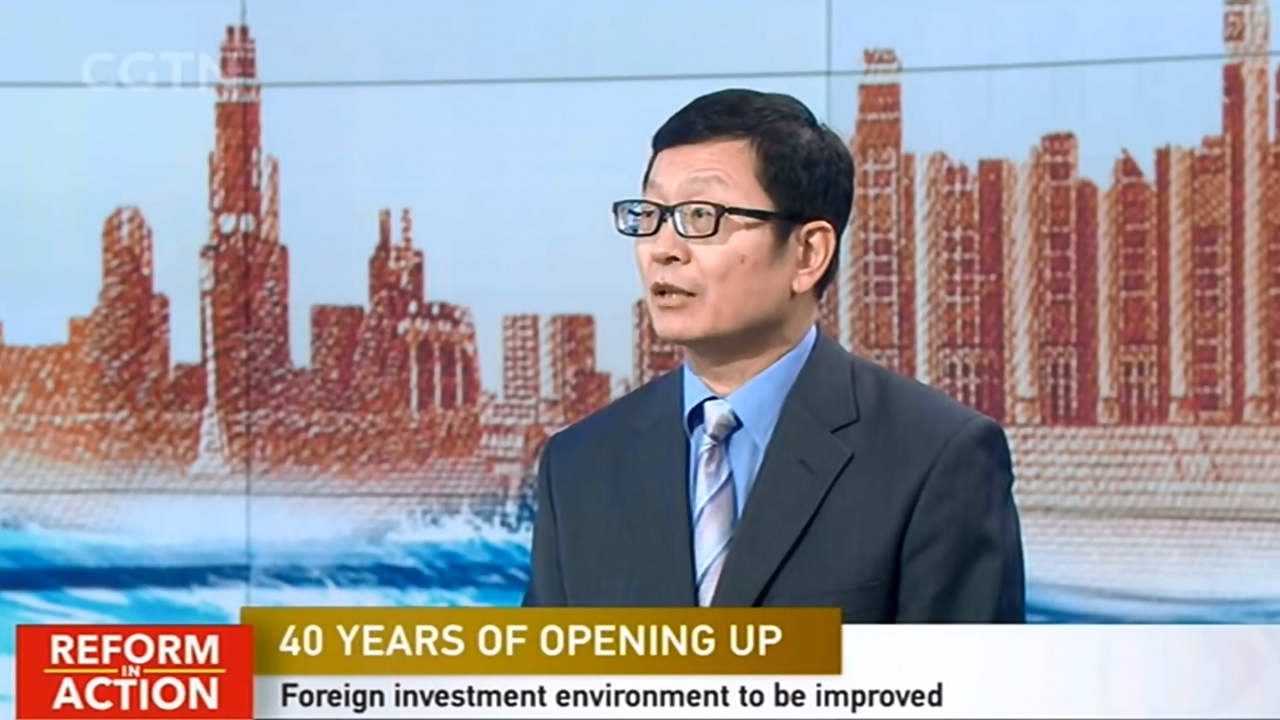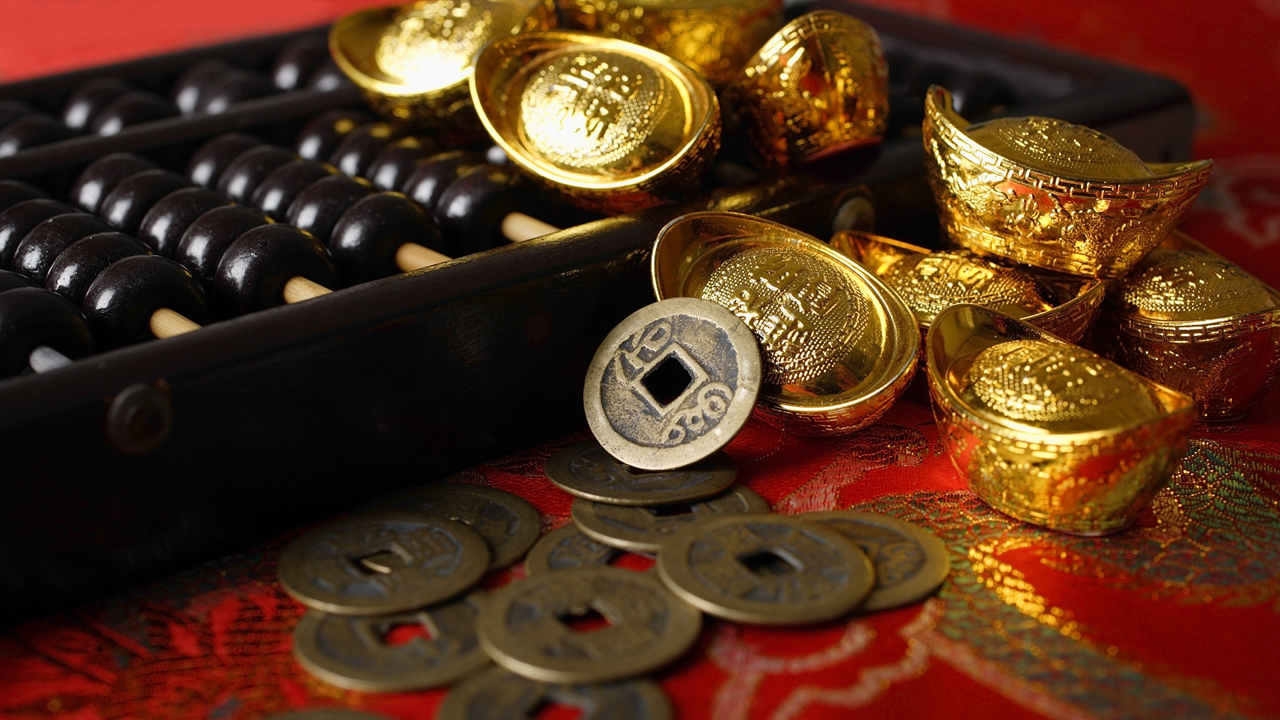
Business
21:27, 10-Oct-2017
Reform in Action: China's economy riding the tide of globalization
By CGTN’s Du Zhongyan

Opening-up is one of China's basic state policies. The Chinese economy has experienced ground-breaking transformations since it first opened its doors to the outside world four decades ago. Now, the country is blazing a trail of its own.
For a better opening-up, Zhou Xiaochuan, governor of the country's central bank the People’s Bank of China (PBOC), said China must embrace free trade and investment, as well as let the market decide the yuan’s value.

VCG Photo
VCG Photo
Chinese economy going out
China has contributed more than 30 percent on average to the global economic growth in the past four years, and its financial sector is gaining status globally.
As to the currency, yuan is on the course of globalization. The currency was included in the Special Drawing Right currency basket by International Monetary Fund in 2016. And the following year saw the European central bank expand its renminbi reserve by the equivalent of 500 million Euros.
Renminbi accounted for 1.94 percent of global transactions in August, is the fifth most used currency in global transactions, behind the US dollar, euro, pound and yen, according to the Society for Worldwide Interbank Financial Telecommunications (SWIFT).

VCG Photo
VCG Photo
"The appetite for using the renminbi to make international payments among financial institutions remains firmly on the rise, reflecting the increasing acceptance of the renminbi as a true global currency," said Kee Joo Wong, regional head of global liquidity and cash management, Asia-Pacific, HSBC.
For the stock market, MSCI incorporated China's A-shares into its Emerging Market Index in mid-2018. This decision has broad support from international institutional investors with whom MSCI consulted.

VCG Photo
VCG Photo
Attracting foreign investment has been one of the most prominent features of China's reform and opening up.
China has developed new ways to attract foreign investment to cope with the evolving domestic and international business environments.
Recently, China was in the third position with inflows of 134 billion US dollars, one percent decrease from the previous year, according to the world investment report released by the United Nations Conference on Trade and Development. (UNCTAD)

Wang Jianhui, the general manager of R&D Department of Capital Securities, said foreign direct investment (FDI) in China is "reaching kind of plateau right now."
"The total volumes could be ranging between 110 billion US dollars and 120 billion US dollars for a year. This situation could last for next one or two years at least. And the investment opportunities are also difficult to find. So for traditional sectors, manufacturing sector, for instance, you won’t have any profitable chance," Wang added.
But China remains one of the top prospective investors, certified by UNCTAD.
About 28,000 of foreign companies have set up projects in China last year alone while 11 free trade zones sprang up across the nation to reduce taxation and streamline trade procedures for overseas enterprises, based on data from China’s Ministry of Commerce.

VCG Photo
VCG Photo
While various attractive ways are showing up, some international investors focus on China’s financial sector most. The opening-up in this sector is "lagging behind."
Wang is positive about financial sector’s opening-up, based on his own experiences. "I think the situation could change. The opening in this sector now is not as risky as expected before. And also the threat for the domestic industry players are not as bad as feared before," Wang elaborated.
"If you notice the recent interview of PBOC’s governor, he mentioned the opening-up policy in financial sector. I think there is a hint that this opening-up policy could be speeding up in the future," Wang told CGTN.

SITEMAP
Copyright © 2018 CGTN. Beijing ICP prepared NO.16065310-3
Copyright © 2018 CGTN. Beijing ICP prepared NO.16065310-3